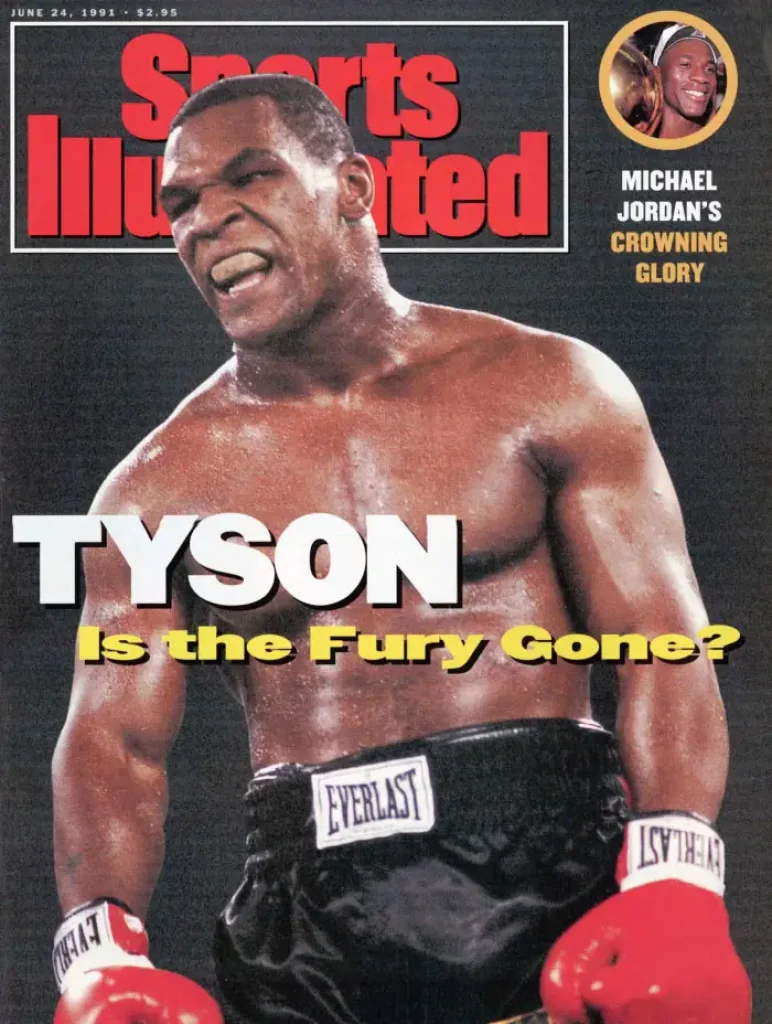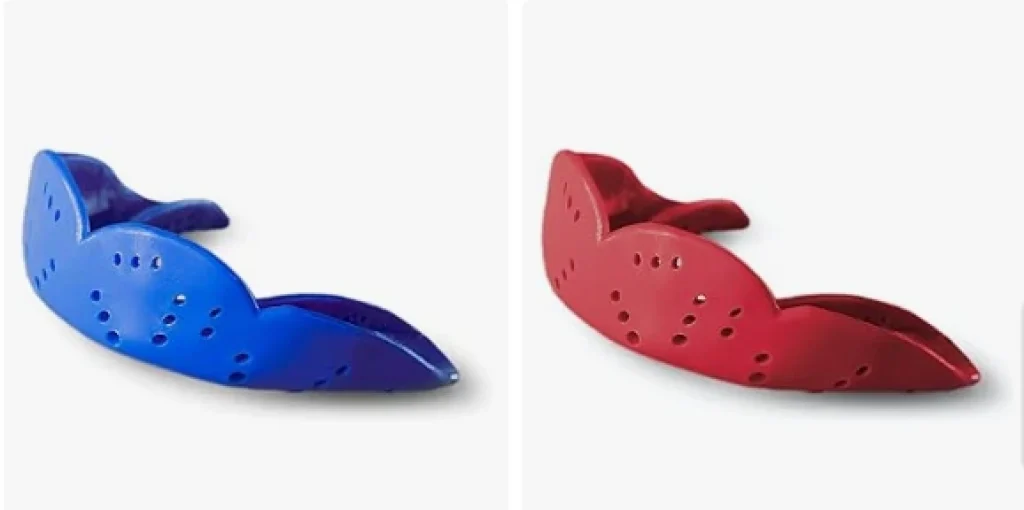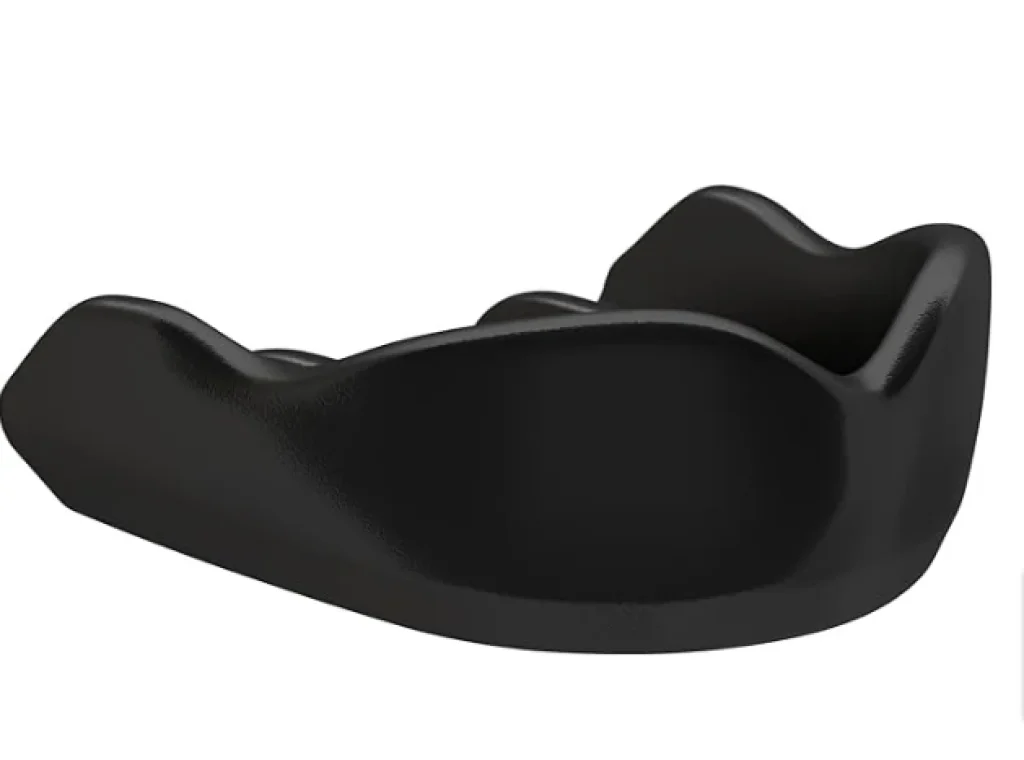Mouthpiece in Boxing: To Wear or Not to Wear?
In the fast-paced, hard-hitting world of boxing, protection is paramount. “Mouthpiece in Boxing” is not just a phrase; it’s a crucial piece of equipment that ensures both safety and performance inside the squared circle. Let’s dive into the key aspects surrounding the use of mouthpieces in boxing and address the burning questions every pugilist, from amateurs to seasoned professionals, may have.
Why do boxers wear mouthpieces?
Protection Beyond Words
Boxers wear mouthpieces primarily for protection. The mouth and teeth are vulnerable during a match, and a well-fitted mouthpiece acts as a shock absorber, reducing the risk of dental injuries, lip lacerations, and even concussions.
The mouthpiece, also known as a gum shield or mouthguard, is a flexible device made of plastic or similar materials that is custom-fitted to the athlete’s mouth. Here are the main reasons why boxers use mouthpieces:
- Dental Protection: The primary function of a mouthpiece is to protect the teeth. Boxing involves powerful punches, and a well-placed blow to the jaw can cause the teeth to collide, leading to chipped or broken teeth. A mouthpiece provides a cushioning effect and helps distribute the impact forces, reducing the risk of dental injuries.
- Jaw Protection: A mouthpiece also helps protect the jaw by providing a buffer against impacts. It can absorb and disperse the force of a punch, reducing the likelihood of jaw fractures or dislocations.
- Prevention of Concussions: While a mouthpiece is not designed specifically for preventing concussions, it can potentially contribute to reducing the risk of concussive injuries by absorbing some of the impact energy from punches.
- Facial and Lip Injuries: In addition to protecting the teeth and jaw, a mouthpiece can help prevent injuries to the lips, tongue, and other soft tissues in the mouth. It acts as a barrier between the upper and lower teeth, reducing the risk of lacerations or bruising.
- Regulatory Requirement: Many boxing and combat sports organizations require athletes to wear mouthpieces during matches for safety reasons. It is often a mandatory piece of equipment to participate in organized competitions.
Overall, wearing a mouthpiece is a crucial safety measure in boxing and other combat sports to minimize the risk of oral and facial injuries.
What is a mouthpiece for in boxing?
The Guardian of Grins
A mouthpiece in boxing serves as a protective barrier between the upper and lower jaws. It’s designed to absorb and distribute impact forces, safeguarding not only teeth and gums but also reducing the risk of jaw fractures.
What are the benefits of using a mouthguard in boxing?
The Shield of the Warrior
The benefits extend beyond mere protection. A properly fitted mouthguard enhances breathing, communication, and overall comfort during a bout. It also acts as a psychological boost, allowing fighters to focus on their craft without the fear of dental mishaps.
Are mouthguards mandatory in boxing?
Yes, most boxing organizations and commissions mandate the use of mouthguards during competitions. It’s a non-negotiable safety measure, emphasizing the significance of protecting a boxer’s oral health.
All professional boxers are required to wear a mouthpiece during competition. The
ASSOCIATION OF BOXING COMMISSIONS
round cannot begin without the mouthpiece. If the mouthpiece is dislodged during
competition, the referee will call time and have the mouthpiece replaced at the first
opportune moment, without interfering with the immediate action. Points may be
deducted by the referee if he feels the mouthpiece is being purposely spit out.
UNIFORM RULES OF BOXING

How to choose the right mouthpiece for boxing?
The Perfect Fit
Choosing the right mouthpiece is crucial. Factors such as size, material, and fit play a significant role. A customized mouthguard, molded to the boxer’s teeth and jaw, provides optimal protection and comfort.
- Type of Mouthpiece:
- Custom-Fitted: Consider getting a custom-fitted mouthpiece from a dental professional. These are molded specifically to the shape of your mouth, providing the best fit and protection.
- Boil-and-Bite: These mouthpieces are made from thermoplastic material that softens in boiling water. After boiling, you bite into the softened material to create a mold of your teeth. They offer a better fit than generic, one-size-fits-all options.
- Material:
- Polyethylene: Many mouthguards are made from polyethylene, a durable and impact-resistant material.
- Polyvinyl Acetate (PVA): This material provides good shock absorption and is often used in higher-end mouthguards.
- Thickness:
- Mouthpieces come in different thicknesses. Thicker mouthguards generally offer more protection but can be less comfortable. Choose a thickness that balances protection with comfort based on your personal preference.
- Breathing Holes:
- Some mouthpieces have breathing holes to make it easier for the wearer to breathe. Consider this feature if you find it challenging to breathe comfortably with a regular mouthguard.
- Tether Options:
- Some mouthguards come with tethers that attach to headgear. This helps keep the mouthguard in place during a match and prevents it from getting lost.
- Compliance with Regulations:
- Ensure that the mouthpiece complies with the rules and regulations of the boxing or combat sports organization you are affiliated with. Some competitions may have specific requirements for mouthguard design and materials.
- Personal Comfort:
- The more comfortable the mouthpiece, the more likely you are to wear it consistently. If you find a particular style or brand more comfortable, it may be worth the investment.
How do you breathe with a mouthpiece in boxing?
Proper breathing is essential in any sport, and boxing is no exception. With a well-fitted mouthpiece, boxers can adapt their breathing patterns, ensuring sufficient oxygen intake during intense moments in the ring.
- Practice Breathing Techniques:
- Spend some time practicing controlled breathing techniques during training sessions. This helps you get used to breathing with the mouthpiece in place.
- Nose Breathing:
- Whenever possible, try to breathe through your nose. Nasal breathing helps filter and humidify the air, making it easier on your lungs. Reserve mouth breathing for situations where you need to take in larger volumes of air quickly.
- Relaxed Jaw:
- Keep your jaw relaxed. Tension in the jaw can make it more difficult to breathe with a mouthpiece. Try to maintain a comfortable and slightly open-mouth position.
- Inhale During Clinches or Defensive Movements:
- Take advantage of clinches or defensive movements to inhale. When the action slows down or when you’re in a defensive position, use these moments to take deep breaths through your nose.
- Exhale During Punches:
- Exhale forcefully during your punches. This not only helps with the power and speed of your punches but also ensures that you expel stale air from your lungs. Exhaling through the nose or the slightly open mouth is effective.
- Short, Quick Breaths:
- If you need to take quick breaths during intense moments, use short and rapid breaths. This is especially important when you’re exerting a lot of energy during combinations or defensive maneuvers.
- Stay Calm and Controlled:
- Try to remain calm and composed. Anxiety and panic can lead to rapid, shallow breathing. Stay focused on your breathing and maintain a controlled rhythm.
- Use Breaks Wisely:
- Take advantage of breaks between rounds to breathe deeply and recover. Use these breaks to reset your breathing and prepare for the next round.
- Conditioning:
- Work on your overall cardiovascular conditioning. Improved fitness can enhance your lung capacity and make it easier to regulate your breathing, even with a mouthpiece.
Should you keep your mouth closed in boxing?
Yes, keeping the mouth closed is recommended while boxing. A closed-mouth posture not only ensures the mouthguard stays in place but also minimizes the risk of injury to the lips and tongue.
Do professional boxers use custom-made mouthpieces?
Many professional boxers opt for custom-made mouthpieces. These provide a snug fit, offering maximum protection while allowing the athlete to focus on their performance without any distractions.
How often should you replace a boxing mouthguard?
Regular inspection is key. While it depends on usage and wear, a general rule is to replace a mouthguard every season or sooner if any damage is evident.
What is the best mouthguard for boxing?
Top Picks for Protection
The ideal mouthguard varies based on individual preferences, but reputable brands such as Shock Doctor, Everlast, and SISU have gained recognition for providing reliable protection and comfort.
SISU Mouthguard
DAMAGE CONTROL High Impact Mouth Guard
Are there different types of mouthguards for different boxing disciplines?
Yes, mouthguards may vary for different boxing disciplines. Amateur boxers might opt for more flexible mouthpieces, while professionals may prefer a custom fit for optimal protection and performance.
What is the proper way to clean and care for a boxing mouthpiece?
Regular cleaning is crucial. Rinse the mouthguard with cold water after each use and occasionally soak it in an antiseptic mouthwash. Avoid exposing it to extreme temperatures or direct sunlight.
- Rinse Immediately After Use:
- Rinse your mouthguard with cool water as soon as possible after use. This helps remove saliva, blood, and other residues. Avoid using hot water, as it can deform the mouthguard.
- Clean with Mild Soap:
- Use a mild soap or a non-alcoholic, antibacterial mouthguard cleaner to clean the mouthguard. Gently scrub it with a soft toothbrush or a mouthguard brush. Avoid using toothpaste, as it can be abrasive and damage the mouthguard.
- Avoid Harsh Chemicals:
- Do not use harsh chemicals or alcohol-based cleaners, as they can damage the material and affect the fit of the mouthguard.
- Air Dry:
- After cleaning, let the mouthguard air dry thoroughly. Avoid using a hairdryer, as excessive heat can cause the mouthguard to lose its shape. Store it in a well-ventilated case.
- Keep it in a Case:
- When not in use, store your mouthguard in a ventilated case. This helps protect it from dirt, bacteria, and damage. Make sure the case has holes for airflow to prevent bacterial growth.
- Avoid Chewing:
- Do not chew on your mouthguard, as this can lead to premature wear and tear. Additionally, chewing can affect the fit and compromise the protective qualities of the mouthguard.
- Inspect Regularly:
- Regularly inspect your mouthguard for signs of wear, tear, or damage. Look for any cracks, tears, or changes in shape. If you notice any issues, it may be time to replace the mouthguard.
- Replace as Needed:
- Mouthguards have a limited lifespan. Replace your mouthguard if it becomes worn, damaged, or if it no longer fits properly. Follow the manufacturer’s recommendations for replacement, as they can vary depending on the type of mouthguard.
- Avoid Sun Exposure:
- Do not expose your mouthguard to direct sunlight or extreme heat. Prolonged exposure to sunlight or heat can cause the material to degrade.
- Custom Mouthguards:
- If you have a custom-fitted mouthguard, follow any additional care instructions provided by your dentist.
What should you do if your mouthguard gets damaged during a fight?
If a mouthguard gets damaged during a fight, the boxer should signal the referee for a pause. The cornerman can then provide a replacement if necessary, ensuring continuous protection.
Are there alternatives to traditional mouthguards in boxing?
While traditional mouthguards prevail, advancements in technology have introduced alternatives like boil-and-bite guards and even custom 3D-printed options. However, their efficacy may vary, and traditional mouthguards remain the gold standard.
What does it mean when a boxer spits out his mouthpiece?
Surrender or Strategy?
If the mouthpiece becomes dislodged during a match, the referee will pause the competition and arrange for the mouthpiece to be replaced at the earliest suitable break in the action, ensuring minimal disruption. The referee may deduct points if it is perceived that the mouthpiece is intentionally spat out by the boxer.
Spitting out a mouthpiece can be a strategic move to buy time or signal distress. However, it can also result in penalties or even disqualification, making it a risky choice.
Did Mike Tyson wear a mouthpiece?
Iron Mike’s Guard
Yes, Mike Tyson, one of the most iconic boxers in history, always wore a mouthpiece during his matches. This emphasizes the universal importance of this protective gear, even for legends of the sport.

Do you need a mouthpiece for sparring?
Yes, using a mouthpiece is highly recommended for sparring in boxing or any other combat sport. A mouthpiece serves as a protective device, helping to prevent injuries to the teeth, jaw, and other oral structures during sparring sessions.
Expert Data Table: Top-Rated Mouthguards
| Brand | Type | Material | Customizable | Recommended For |
|---|---|---|---|---|
| Shock Doctor | Gel Max Convertible | Gel | Yes | All Levels |
| Everlast | EverShield Double Mouth | Thermoplastic | No | Beginners to Mid |
| SISU | Max 2.4mm | Polypropylene | Yes | Professional |
In conclusion, the mouthpiece in boxing is more than just protective gear; it’s a vital aspect of a boxer’s toolkit. From safeguarding oral health to potentially influencing performance, the right mouthguard can make a significant difference. Understanding the nuances, regulations, and options available ensures that every warrior stepping into the ring does so with the best possible defense.
For further information on boxing safety and regulations, consult reputable sources such as Boxing Insider and World Boxing Association (WBA).

